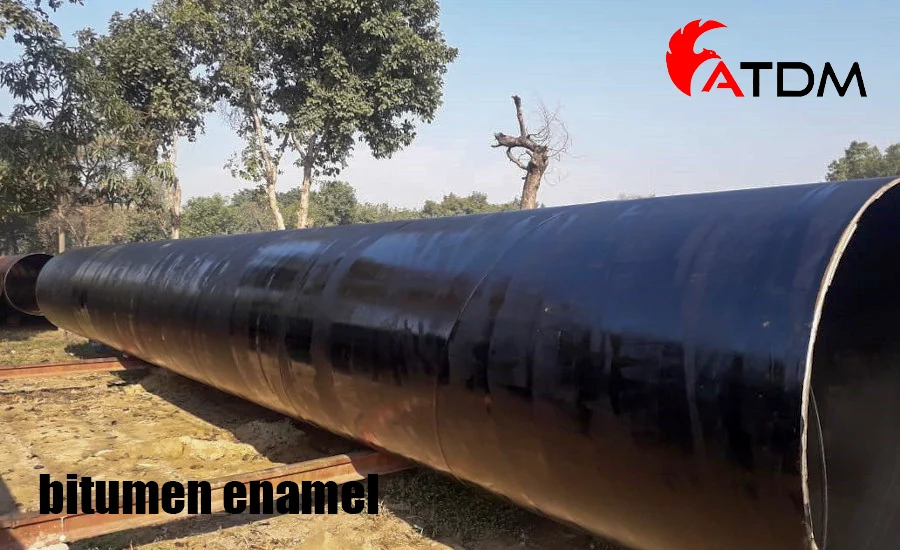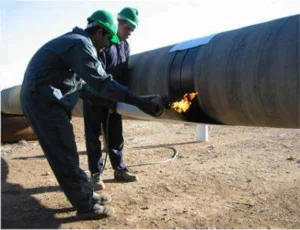
Bitumen enamel is a protective coating commonly used to prevent corrosion in iron and steel. It is especially useful in industries like construction and oil and gas. According to BS 4147:1980, this product, along with suitable primers, is ideal for protecting metal surfaces. It is often applied as a hot-applied coating, offering long-lasting protection.
Why Bitumen Enamel Replaces Coal Tar Enamel
In the past, coal tar enamel was the go-to material for corrosion protection. However, environmental concerns have led to a shift toward bitumen enamel. Coal tar enamel has become less popular due to the difficulty of sourcing high-quality raw materials. Furthermore, the production of coal tar enamel often causes evaporation of ingredients, which affects the quality of the coating.
Composition
A typical bitumen enamel contains 65-75% bitumen and 25-35% filler, according to BS 4164:1980. The bitumen quality varies, with common grades including 105/15, 105/8, and 120/5. The filler is added to improve the consistency and performance of the enamel. This mixture helps ensure the enamel’s durability and effectiveness in protecting metal surfaces.
Application in Pipe Coatings
This Product is increasingly used as a coating for pipes, especially in the oil and gas industry. In places like the North Sea, it is relied upon to protect pipelines from corrosion. However, during the 1972-1973 oil crisis, there were concerns about the quality of bitumen. This highlighted the importance of using high-quality bitumen to ensure the protection lasts.

Using High-Quality Bitumen
To ensure that bitumen enamel performs effectively, it is crucial to use high-quality oxidized bitumen 115/15. Bitumen quality directly affects the performance of the enamel. For optimal protection, it is essential to maintain high-quality control during production. By focusing on the quality of the bitumen, industries can ensure that their coatings are reliable and durable.
HS and CAS Codes for Bitumen Enamel
For international trade, it is classified under HS Code 2715.00, which covers bitumen products derived from petroleum. When purchasing or selling, this code will be used for customs and shipping. The CAS Code for bitumen, often found in it formulations, is 8052-42-4. This code identifies bitumen-based products, ensuring consistency in the industry.
Production of Bitumen Enamel
The production process for bitumen enamel begins with heating the bitumen to around 220-230°C. It is then mixed with fillers to create a uniform product. The mixture is applied as a 5-7 mm thick layer onto the metal surface, where it forms a protective barrier against corrosion. This process ensures that the coating is both durable and effective.
Innovations in Coating
New developments in bitumen enamel coatings include the use of block polymers. In GB-PS No. 1538267, a composition containing 80-99% bitumen and 1-20% block polymer is introduced. This combination enhances the flexibility of the coating. However, this method has yet to be widely adopted in industry due to bonding issues. Further research is needed to improve the coating’s effectiveness for industrial use.
Why Choose Bitumen Enamel?
In conclusion, bitumen enamel is an excellent choice for protecting iron and steel from corrosion. Its long-lasting durability, ease of sourcing, and environmental benefits make it a reliable option. As industries continue to face challenges with coal tar enamel, this product offers a superior alternative. By focusing on high-quality materials and following proper production methods, industries can ensure their assets remain protected for years to come